Posts Tagged: CogSci
Cognitive Science
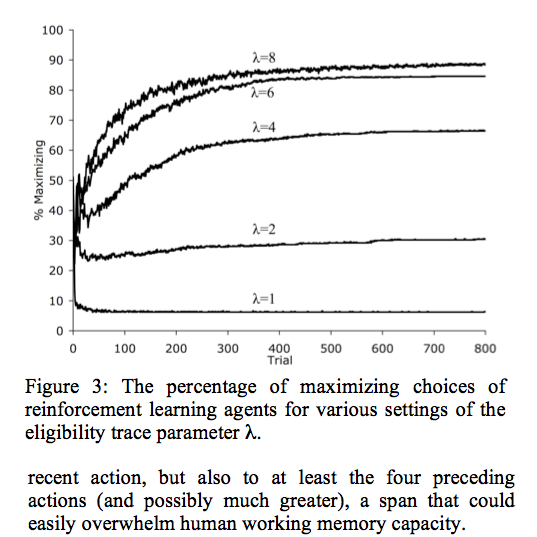
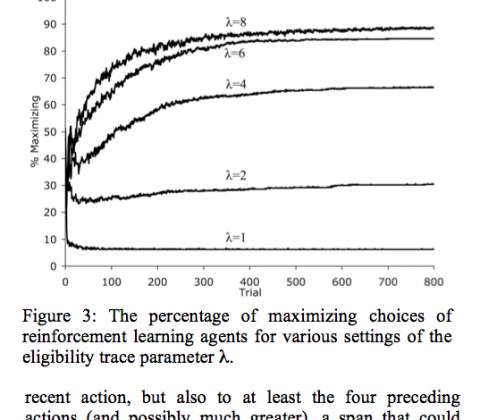
Paper: Melioration dominates maximization
| There is no reason to suppose that most human beings are engaged in maximizing anything unless it be unhappiness, and even this with incomplete success. |
| R.H. Coase (1980), The Firm, the Market, and the Law, p. 4 |
Hansjörg Neth, Chris R. Sims, Wayne D. Gray
Melioration dominates maximization: Stable suboptimal performance despite global feedback
Abstract: Situations that present individuals with a conflict between local and global gains often evoke a behavioral pattern known as melioration — a preference for immediate rewards over higher long-term gains. Using a variant of a binary forced- choice paradigm by Tunney & Shanks (2002), we explored the potential role of global feedback as a means to reduce this bias.
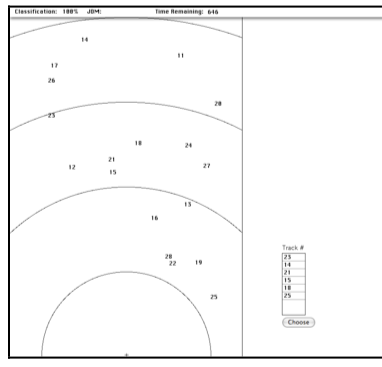

Paper: Integrated models of cognitive systems
Michael J. Schoelles, Hansjörg Neth, Christopher W. Myers, Wayne D. Gray
Steps towards integrated models of cognitive systems: A levels-of-analysis approach to comparing human performance to model predictions in a complex task environment
Abstract: Attempts to model complex task environments can serve as benchmarks that enable us to assess the state of cognitive theory and to identify productive topics for future research. Such models must be accompanied by a thorough examination of their fit to overall performance as well as their detailed fit to the microstructure of performance. We provide an example of this approach in our Argus Prime model of a complex simulated radar operator task that combines real-time demands on human cognitive, perceptual, and action with a dynamic decision-making task. The generally good fit of the model to overall performance is a mark of the power of contemporary cognitive theory and architectures of cognition. The multiple failures of the model to capture fine-grained details of performance mark the limits of contemporary theory and signal productive areas for future research.
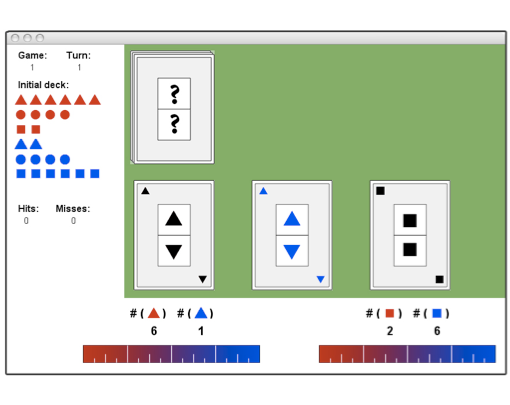
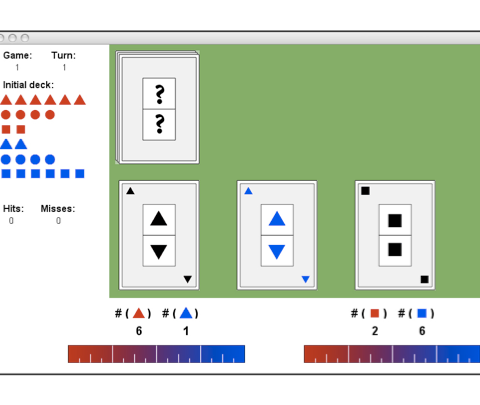
Paper: Dynamic memory updates in TRACS
| You can’t play 20 questions with nature and win. |
| Allen Newell (1973) |
Hansjörg Neth, Chris R. Sims, Vladislav D. Veksler, Wayne D. Gray
You can’t play straight TRACS and win: Memory updates in a dynamic task environment
Abstract: To investigate people’s ability to update memory in a dynamic task environment we use the experimental card game TRACS^tm (Burns, 2001). In many card games card counting is a component of optimal performance. However, for TRACS, Burns (2002a) reported that players exhibited a baseline bias: rather than basing their choices on the actual number of cards remaining in the deck, they chose cards based on the initial composition of the deck. Both a task analysis and computer simulation show that a perfectly executed memory update strategy has minimal value in the original game, suggesting that a baseline strategy is a rational adaptation to the demands of the original game. We then redesign the game to maximize the difference in performance between baseline and update strategies. An empirical study with the new game shows that players perform much better than could be achieved by a baseline strategy. Hence, we conclude that people will adopt a memory update strategy when the benefits outweigh the costs.
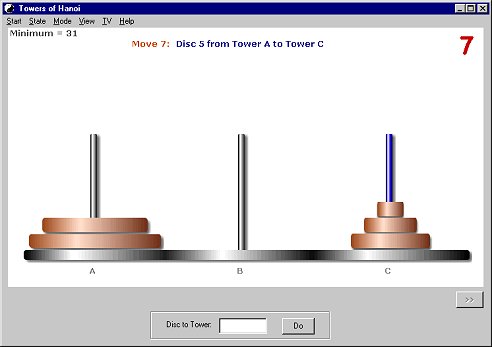
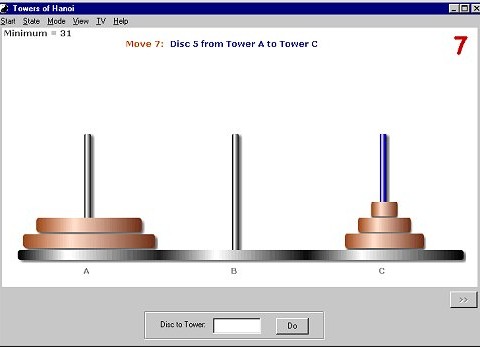
Paper: Thinking by doing?
| There is a co-ordination of senses and thought, and also a reciprocal influence between brain activity and material creative activity. In this reaction the hands are peculiarly important. It is a moot point whether the human hand created the human brain, or the brain created the hand. Certainly the connection is intimate and reciprocal. |
| A.N. Whitehead, Technical Education and its Relation to Science and Literature, p. 78. |
Hansjörg Neth, Stephen J. Payne
Thinking by doing? Epistemic actions in the tower of Hanoi
Abstract: This article explores the concept of epistemic actions in the Tower of Hanoi (ToH) problem. Epistemic actions (Kirsh & Maglio, 1994) are actions that do not traverse the problem space toward the goal but facilitate subsequent problem solving by changing the actor’s cognitive state. We report an experiment in which people repeatedly solve ToH tasks. An instructional manipulation asked participants to minimize moves either trial by trial or only on the last three of six trials. This manipulation did not have the predicted effect on the trial-by-trial move counts. A second, device manipulation provided some participants with an “exploratory mode” in which move sequences could be tried then undone without affecting the criterion move count. Participants effectively used this mode to reduce moves on each trial, but there was no clear evidence that they used it to learn about the problem across trials. We conclude that there is strong evidence for one sub-type of epistemic action (acting-to-plan) but no evidence for a second sub-type (acting-to-learn).